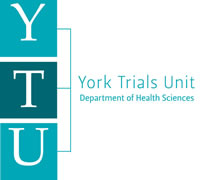A randomised trial to determine the clinical and cost effectiveness of repairing flexor digitorum profundus (FDP) alone versus repair of both FDP and flexor digitorum superficialis (FDS) for treatment of complete zone 2 flexor tendon injuries: the FLexor repAir and REhabilitation (FLARE) Trial.
Repair and rehabilitation of zone 2 flexor tendon injuries remains controversial because of the unique challenges provided by the anatomy and biomechanics. Unlike any other zone in the hand, the tight flexor sheath makes repairs in this zone technically difficult and increases the risk of scar tissue forming between the two tendons.
The finger flexor zone 2 contains two tendons. The flexor digitorum superficialis (FDS) tendon inserts on the middle phalanx and the flexor digitorum profundus (FDP) on the distal phalanx. A national survey of open flexor tendon injuries in 2016 found a large majority of surgeons repaired both divided tendons in zone 2, whilst a more recent service evaluation, during the COVID-19 pandemic, found this proportion had fallen to half. The reduction in repairing of both tendons might be a result of the move to performing simpler surgery during the pandemic.
Recent publications suggest that repairing FDP alone shows no difference in any outcome six months after the intervention in terms of range of movement and power grip, and better tendon gliding following repair. Furthermore, repair of both tendons takes longer to complete and is likely to be more expensive. These studies were likely underpowered and at high risk of bias. They do not address the existing clinical uncertainty.
Therefore, given the lack of high quality randomised controlled trial evidence, there is an urgent need for a definitive randomised controlled trial on repair of FDP alone versus repair of both tendons to inform clinical practice.
Aims and objectives
To undertake a multi-centre, two-arm, non-inferiority, parallel group, randomised controlled trial to determine the clinical and cost effectiveness of repairing FDP alone versus repair of both FDP and FDS for treatment of recent complete zone 2 flexor tendon injuries in consenting patients over the age of 16 years old. The primary outcome is the Patient Evaluation Measure at 6 months follow up. The additional objectives are to undertake an analysis of the rate of re-operation and other secondary outcomes and a cost-effectiveness analysis of the two interventions from the NHS perspective.
Methods
A multicentre, two-arm, non-inferiority, parallel group, RCT with patients and assessors masked to surgical procedure.
Target Population: Patients aged 16 years and over with an open flexor tendon injury within zone 2 only and require surgical repair
Intervention: Flexor Digitorum Profundus (FDP) is repaired only
Control: Repair of both Flexor Digitorum Profundus (FDP) and Flexor Digitorum Superficialis (FDS)
Sample Size: 310 (Randomisation 1:1)
Estimated Recruitment Period: 40 months (target date of first enrolment October 2022)
Duration per Patient: 6 months
Funding
| Funder(s): | National Institute for Health Research (NIHR) Health Technology Assessment (HTA) |
| Start Date: | April 2022 |
| End Date: | July 2025 |
Members
YTU Team
- Joy Adamson
- Michelle Watson
- Ellie Fitzmaurice
- Kalpita Baird
- Fraser Wiggins
- Liz Cook
- Karen Glerum-Brooks
- Catherine Hewitt
- Emma Moatt
- Arabella Scantlebury
External Team
- Matthew Gardiner (co-CI, Consultant Hand and Plastic Surgeon at Frimley Health NHS Foundation Trust)
- Ms Emma Reay (co-CI, Consultant Hand and Wrist Surgeon, South Tees Hospitals NHS Foundation Trust)
- Mr Ryckie Wade (Clinical Research Fellow, University of Leeds)
- Dr Lisa Newington (Research Associate at Imperial College London)
- Dr Lucksy Kottam (Trials Manager, South Tees Hospital NHS Foundation Trust)
- Professor Amar Rangan (Professor at South Tees Hospitals NHS Foundation Trust)
- Miss Jennifer Lane (Clinical Research Fellow, University of Oxford)
- Mr Satwinder Hira (PPI Representative)
- Mr Justin Wormald (NIHR Doctoral Research Fellow, University of Oxford)
- Mr David Holmes (ST5 Trainee, Wirral University Teaching Hospital NHS Foundation Trust)
- Associate Professor Jeremy Rodrigues (Associate Professor, Warwick Clinical Trials Unit),
Contact Us
Email Address: ytu-flare-trial@york.ac.uk
Phone Number: TBC
Twitter: @FLARE_ _Trial




